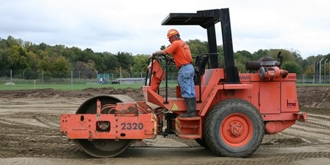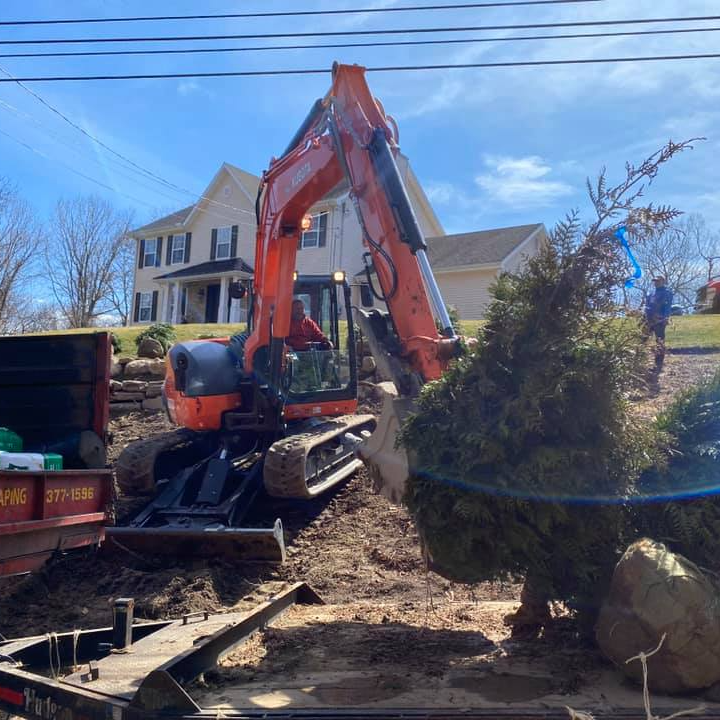Lancaster Excavation - Professional Excavation Providers in Lancaster, OH
Lancaster Excavation - Professional Excavation Providers in Lancaster, OH
Blog Article
Comprehensive Excavation Techniques: Grasping the Principles for Success
In the world of construction and civil design, the value of effective excavation techniques can not be overemphasized. The cautious planning, specific execution, and precise attention to information required in excavation projects require a detailed technique that encompasses numerous fundamental aspects. From preliminary dirt evaluation to the execution of precaution and regular progression tracking, understanding these core aspects is crucial for accomplishing success in any excavation undertaking. The real proficiency exists not simply in understanding these fundamentals however in flawlessly integrating them to navigate the intricacies of excavation projects with finesse.
Comprehending Excavation Job Planning

The preliminary stage of any excavation job is the planning stage, where important choices are made that can significantly affect the outcome of the job. Recognizing the project timeline, budget, and extent restrictions is crucial for creating an extensive excavation plan that makes certain the job's success.
One key element of excavation project preparation is the advancement of a thorough timeline that describes the sequence of turning points, activities, and target dates. By carefully thinking about all these variables during the preparation phase, excavation projects can be implemented efficiently and efficiently, leading to effective outcomes - dump truck companies in ohio.
Soil Analysis and Website Analysis
Conducting complete dirt analysis and website assessment is an essential action in the preparation phase of any excavation project. Soil analysis involves establishing the structure, framework, and homes of the dirt at the excavation site. This information is crucial for understanding the soil's bearing ability, moisture material, and potential for erosion, which are key variables in establishing the excavation methods and devices needed for the project.
Website examination exceeds dirt evaluation and includes a wider analysis of the overall website problems. This examination consists of recognizing any type of possible hazards, such as below ground energies, ecological concerns, or unstable surface, that can influence the excavation process. By completely examining the site, project managers can develop effective excavation methods that focus on safety, effectiveness, and environmental management.
Utilizing advanced innovations like ground-penetrating radar, soil tasting, and drone studies can boost the precision and performance of dirt evaluation and site evaluation. Spending time and resources in these initial actions can ultimately conserve time and stop costly hold-ups or issues throughout the excavation process.
Devices Option and Usage
Effective excavation tasks rely greatly on critical devices selection and application to make sure optimal efficiency and efficiency. Choosing the best equipment for the work is important in making best use of effectiveness and decreasing downtime. Aspects such as the type of dirt, depth of excavation, and project extent play a considerable duty in figuring out the most suitable equipment for the job at hand.

In addition to selecting the appropriate equipment, proper utilization is key to job success. Operators has to be trained to take care of the devices safely and efficiently - lancaster trenching. Routine maintenance checks and prompt repair work assist avoid failures and ensure constant performance throughout the job
Security Procedures and Laws Conformity
In the world of excavation tasks, focusing on security actions and conformity with policies is paramount to making sure a lawfully sound and safe functional environment. Precaution include a range of techniques, consisting of performing detailed site analyses, executing correct signage and obstacles, and providing appropriate safety and security training for all personnel entailed in the excavation procedure. Adherence to policies, such as OSHA requirements in the USA, makes sure that the excavation task fulfills the necessary criteria to safeguard employees, spectators, and the surrounding environment.

Surveillance Progress and Adjusting Strategies
Just how can forecast managers effectively track the innovation of excavation jobs and adapt their strategies as necessary to enhance outcomes? Surveillance development is vital for guaranteeing that excavation projects stay on track and satisfy deadlines. Job managers can make use of different tools and strategies to track development, such as daily progression reports, normal site inspections, and progressed monitoring modern technologies like drones and general practitioners tracking systems. By continually keeping an eye on the investigate this site project's innovation, managers can recognize any type of potential hold-ups or issues at an early stage and take aggressive steps to resolve them.

Final Thought
To conclude, understanding the basics of detailed excavation techniques is important for the success of any kind of task. By comprehending project planning, assessing soil and site problems, choosing appropriate devices, abiding by security regulations, and keeping track of progression, project managers can make certain a reliable and smooth excavation process. Implementing these approaches will result in successful results and decrease potential dangers or setbacks during the excavation project.
The first phase of any type of excavation project is the planning phase, where crucial choices are made that can considerably influence the outcome of the project. Recognizing the project timeline, range, and spending plan restrictions is important for developing a comprehensive excavation plan that makes certain the task's success.
Exactly how can forecast managers efficiently track the development of excavation projects and adjust their approaches as necessary to enhance end results? By carefully monitoring progression and being willing to adapt approaches, project managers can enhance the overall success of excavation jobs.
By comprehending job planning, examining dirt and site problems, choosing suitable devices, conforming with security policies, and keeping track of development, project managers can ensure a smooth and efficient excavation procedure.
Report this page